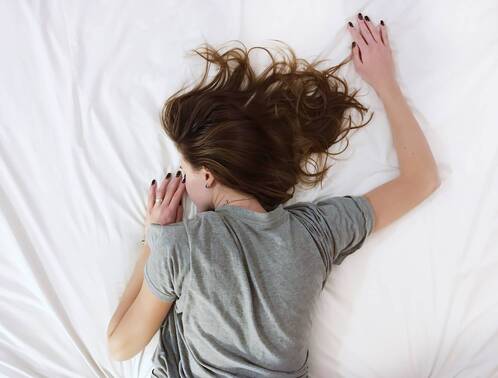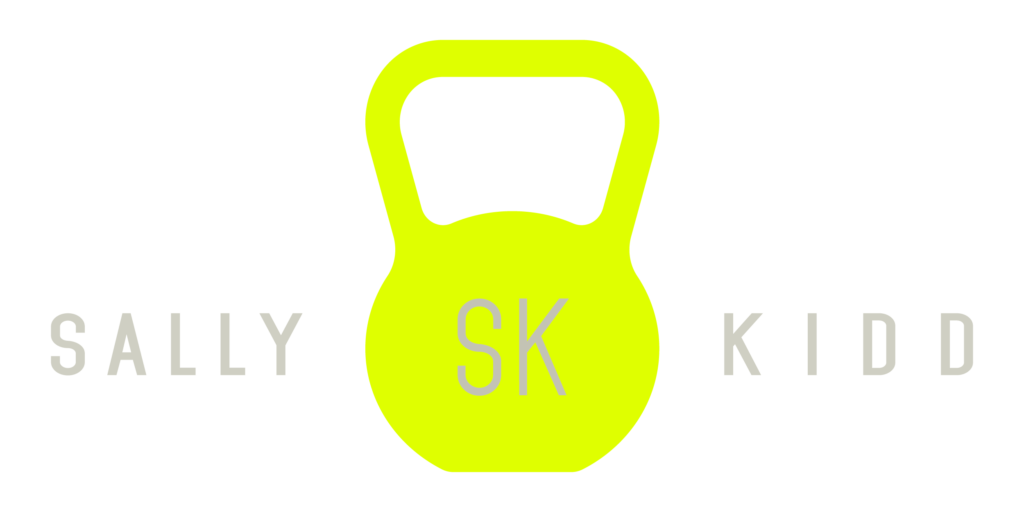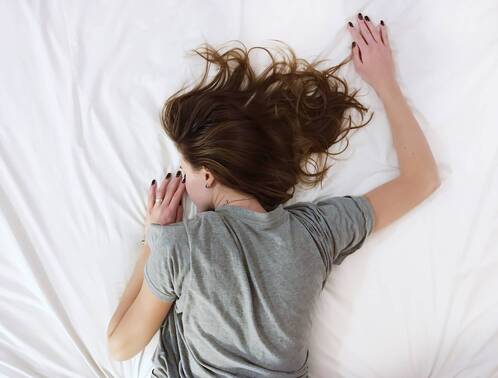
“There really isn’t any system within your body, or process within the brain, that isn’t wonderfully enhanced by sleep when you get it or demonstrably impaired when you don’t get enough.” – Dr. Walker
Sleep is a subject I could talk about all day. I’ve always known the importance of getting enough sleep and I know how mentally and physically drained I feel if I don’t have enough. But what is the science behind it, what are the facts?
I recently listened to a fantastic podcast starring Matthew Walker, a professor of neuroscience and Psychology. I learned why sleep is the number one factor we should be addressing when it comes to being at our optimal health.
The information in this blog all comes from Matthew Walker, he has published over 100 scientific studies and is the author of the book Why We Sleep – a must read if you want to learn more about this fascinating subject.
Are you tired?
If your answer is yes, it would seem relatively straightforward to assume you’re not getting enough sleep.
It’s one of the most important things you can possibly do for yourself. Improve your sleep. You’re going to spend a large portion of your life sleeping. And that’s a good thing! Getting more sleep not only allows you to wake up well rested each morning but also prevents disease and can lead to a longer and happier life overall.
Did you know that routinely sleeping less than 6 hours a night can increase your risk of cancer by 50%? After just one night of less than 5 hours of sleep Natural Killer Cells (which fight cancer cells) drop by 70%! After just one night!
Sleep isn’t just about rest. It’s about the body repairing itself, doing maintenance so to speak. Unfortunately, what has been discovered over time is that, if you lose sleep, taking a nap, while it takes the edge off, it doesn’t replace the sleep lost during the night.
Do you find that you wake up feel groggy or angry? Do you reach for the snooze button 1, 2 or even 3 times each morning? Or, do you hop right out of bed ready to tackle the new day?
What about at night? Do you struggle to fall asleep? Tossing and turning seemingly unable to count enough sheep to get to bed. Or, are you out like a light when you pull the covers over yourself?
DID YOU KNOW:
- Sleep is simply divided into rapid eye movement (REM) sleep, where we dream, and non-REM sleep. Non-REM sleep is the deep restorative sleep which is further divided into four sub-stages. Each stage performs different yet necessary functions.
- Non-REM deep sleep is essential for cementing memories and information. Deep, non-REM sleep is one of the best forms of blood pressure medicine, because it slows your heart rate. It also releases a variety of restorative chemicals and hormones, including a growth hormone that restores the cells in your body.
- Sleep regulates your metabolic system, specifically insulin levels. In fact, studies have shown that one week of five-six hours of sleep a night will disrupt a person’s blood sugar enough to classify them as pre-diabetic. This illustrates the crucial role sleep plays in regulating the metabolic system.
- Appetite regulation and food consumption are directly affected by sleep. Sleep deprivation causes in imbalance in leptin, which tells your brain when you’re satisfied with your food, and ghrelin, which tells your brain you’re not satisfied with your food. This causes you to eat 300-500 more calories a day!!
Not only do you eat more, but you’re also more likely to reach for starchy carbohydrates and high-sugar foods, while avoiding high-protein foods.
Therefore when someone comes to me wanting to change their body composition, the first thing I will discuss will be how well that person sleeps each night!
- After being awake for 21 hours, you’re as cognitively impaired as someone who is legally drunk
- Sleep is like a sewage system for your brain – it cleans all the toxins and debris out of your brain
- Sleep has an image problem; we stigmatise sleep and think its lazy and slothful – people wear lack of sleep as a badge of honour to be celebrated
5 Tips to help you get a better night’s sleep:
1. Go to bed and wake up at the same time.
Regardless if it’s a weekday, the weekend, or a holiday, always wake up at the same time. Even if you have a bad night of sleep, just make sure you fall asleep early the following evening. Sleeping in late causes “social jetlag” where you feel tired in the evening and drift forward in time; this has deleterious consequences to your health and sleep.
2. Keep it cool.
Keeping your bedroom around 68°F (18.5°C) is optimal for most people. This is because your body needs to drop its core temperate 2-3° to initiate sleep. If your feet get cold, then you can add another layer. Also, a hot bath before bed causes mass vasodilation (more so than a hot shower); this pulls your blood near your skin’s surface, plummeting your core temperature.
3. Keep it dark.

Darkness releases melatonin, a vital hormone for the onset of sleep. Too much light inside the house (or from LED screens) before bed will trick your brain into thinking it’s daytime, shut off the production of melatonin, and prevent sleep. Dim your lights by turning half of them off in the evening, avoid LED screens in the last hour before bed, and use black-out curtains.
4. Get up if you’ve been awake in bed for longer than 20-minutes.
Whether you’re trying to fall asleep or wake up, you must get out of bed if you’ve been lying awake for more than 20-minutes. If not, then your brain creates the association that your bed is about being awake, rather than asleep. If you’re trying to fall asleep but can’t, then go to another, dim room and maybe read a book (but avoid eating and screens). Only when you’re sleepy should you return to bed; that way you fall right asleep and recreate the association that beds are for sleeping.
5. No caffeine after noon and no alcohol in the evenings.
Even people who claim that caffeine doesn’t affect them because they fall right asleep suffer from less-deep sleep. When they wake up, they don’t feel as refreshed, then reach for an extra cup in the morning, thus building a cycle of dependency and addiction. If you don’t stop at noon, then certainly after 2:00pm. Alcohol, on the other hand, sedates your cortex (effective knocking out your brain). This causes un-restorative sleep by waking you up multiple times throughout the night. It also blocks your REM sleep, which is critical for creativity and memory processing as well as emotional and mental health.
A common trap for people to fall into is thinking, “Well, this is how I am now at this age.” But this perception of yourself prevents you from realizing that you can be a far better version of yourself, mentally, cognitively, and physiologically, if you simply start getting enough sleep.
This trap can easily occur as a result of excessive or improper caffeine consumption. It isn’t until people come off caffeine that they start to feel the benefits that normally come from high-caffeine use.
TO SUMMARISE:
If you know you have issues with sleep, try this simple self-improvement test:
Give yourself one week of eight-hours of sleep a night (working on the 5 tips I’ve listed above).
Determine if you feel better when you get eight-hours of regularly scheduled sleep versus a random schedule of five-hours one night, then six-hours the next, and so on. Then ask yourself, “Did that experiment work? Is it in my favour? Do I feel any better? Do I notice that improvement?”





